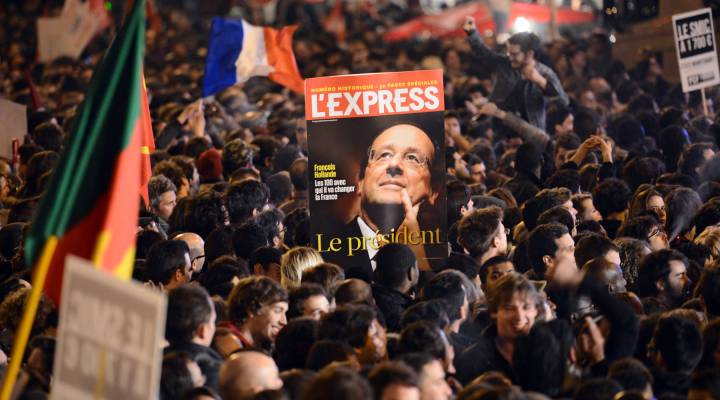
Greece, France vote against austerity in weekend elections

Stacey Vanek Smith: This weekend, French voters elected Socialist candidate Francois Hollande. He’s promised to ease some of France’s austerity measures. And in Greece, voters punished the country’s two incumbent parties – basically a rejection of austerity there.
Andrew Walker is the economics correspondent for the BBC. He joins me now. Good morning, Andrew.
Andrew Walker: Good morning Stacey.
Vanek Smith: Let’s start with the situation in France. What is the significance of Francois Hollande getting elected?
Walker: He has been talking about wanting to put more emphasis on growth in the way that the Eurozone tackles the financial crisis, and less emphasis than has been the case on austerity – that’s to say on measures to get government borrowing needs down.
The extent of that difference is sometimes a bit overblown. You have to say that Mr. Hollande wants to get the French government borrowing down to nothing, but he just wants to take a little bit longer to do it than Mr. (Nicolas) Sarkozy did.
Vanek Smith: And now to Greece where I understand two of the incumbent parties have been voted out. Explain the significance of that and how it’s tying into the situation as well.
Walker: What we don’t know is what sort of coalition is going to emerge and whether it will be prepared to go ahead with those austerity measures and reforms. If they’re not then I think there are some very difficult questions about whether the bailouts will continue. If the bailouts won’t continue what on earth would Greece’s future be?
Vanek Smith: German voters also voted out the party that the Chancellor, Angela Merkel, is in. It seems like there’s a pretty strong signal coming from voters in Europe that they are maybe not for the austerity measures? Is that fair to say?
Walker: There is certainly some resistance to them. In the particular case of Germany, there’s also some resistance to the bailouts for another reason, which is that they don’t want to be paying for them. But certainly there has been a lot of hostility in Germany and a few other countries as well – the Netherlands and Finland, for example, who are the ones who see there money potentially being at risk.
Vanek Smith: And finally Andrew, where do you see things going from here? What are we watching for this week?
Walker: I think the first thing to watch for is what happens with the negotiations to form a new coalition in Greece. I think we’ll also want to look very carefully to see what happens when president elect Francois Hollande meets Chancellor Merkel of Germany – can they find some way of smoothing over these differences they ahve about austerity versus growth? My guess is that they can, but it will be very important for the rest of the Eurozone that they do succeed in doing that.
Vanek Smith: Andrew Walker is the Economics correspondent for the BBC. Thank you Andrew.
Walker: My pleasure Stacey.
There’s a lot happening in the world. Through it all, Marketplace is here for you.
You rely on Marketplace to break down the world’s events and tell you how it affects you in a fact-based, approachable way. We rely on your financial support to keep making that possible.
Your donation today powers the independent journalism that you rely on. For just $5/month, you can help sustain Marketplace so we can keep reporting on the things that matter to you.












